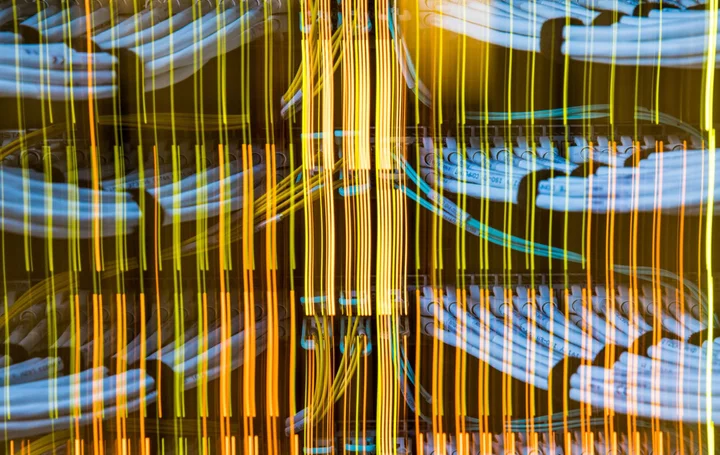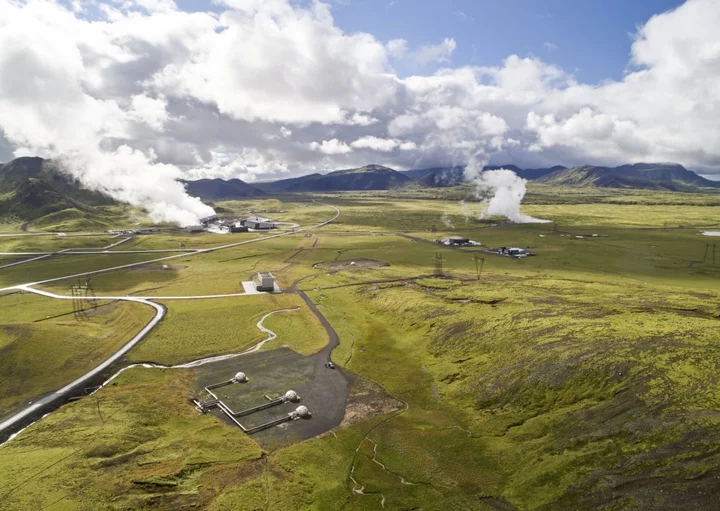
Zoom Ends No-Meeting Wednesday Policy, Calling It ‘Barrier to Collaboration’
Zoom Video Communications Inc. has nixed its policy forbidding internal meetings on Wednesdays, saying it hindered collaboration, a
2023-08-11 00:48

X CEO Linda Yaccarino says company is still watching Threads competition
X CEO Linda Yaccarino, leader of the platform formerly known as Twitter, said the company is keeping an eye on new competitor Threads, despite the sharply slowing growth of the rival app from Meta.
2023-08-11 00:48

Never before seen ecosystem discovered thriving beneath ocean floor
Deep underground within the Pacific ocean, scientists have made a surprising discovery, which could significantly expand our understanding of marine life. Researchers found an entirely new ecosystem when turning over volcanic crust with the aid of an underwater robot, showing that even now, nature has many more secrets to unearth. The Schmidt Ocean Institute led an expedition with a team of international researchers to investigate a known site in the Pacific, according to Science Alert. Sign up to our free Indy100 weekly newsletter Subsurface fluids were found coursing beneath the ground, while scientists also found an ecosystem of worms, snails and chemosynthetic bacteria. The institute’s executive director, Jyotika Virmani, said: “This truly remarkable discovery of a new ecosystem, hidden beneath another ecosystem, provides fresh evidence that life exists in incredible places.” The new life was found beneath hydrothermal vents, which were first discovered in the 1970s spewing hot fluids loaded with minerals. They were in such a deep, dark location that scientists assumed there would be no life. Ecologist Monika Bright from the University of Vienna said: “Vent animals above and below the surface thrive together in unison, depending on vent fluid from below and oxygen in the seawater from above.” Scientists found tubeworms swimming through volcanic fluids, which makes it easier for them to get around and find new locations. The discovery came on the coast of central America, using a remote-controlled robot 2,500 metres below sea level. Wendy Schmidt, president of the Schmidt Ocean Institute, said: “The discovery of new creatures, landscapes, and now, an entirely new ecosystem underscores just how much we have yet to discover about our Ocean – and how important it is to protect what we don’t yet know or understand.” Have your say in our news democracy. Click the upvote icon at the top of the page to help raise this article through the indy100 rankings.
2023-08-11 00:18

U.S. forecasters raise number of major hurricanes for 2023
By Erwin Seba HOUSTON (Reuters) -U.S. government forecasters on Thursday expect a more dangerous Atlantic storm season this year, raising
2023-08-10 23:56

X to auction off old Twitter items, from desk chairs to painting of Ellen DeGeneres' Oscar Selfie
Twitter is officially rebranding as X — so Elon Musk is holding a giant garage sale to purge the company's HQ of remnants of the past.
2023-08-10 23:51

Cyber Firm Check Point Buys Perimeter 81 in $490 Million Deal
Cybersecurity company Check Point Software Technologies Ltd. signed a deal to acquire Perimeter 81 for $490 million in
2023-08-10 23:47

Biden Set to Bet Billions on Tech That Sucks Carbon Out of the Air
The Biden administration is throwing its weight behind technology that sucks planet-warming carbon dioxide out of the air,
2023-08-10 23:26

AI can predict Parkinson’s subtype with up to 95% accuracy, study suggests
Scientists have developed an artificial intelligence (AI) tool that can classify four subtypes of Parkinson’s disease with up to 95% accuracy. Researchers from the Francis Crick Institute and the UCL Queen Square Institute of Neurology in London “trained” a computer program to recognise the subtypes of the condition using images of stem cells from patients. The team said their work, published in the journal Nature Machine Intelligence, could pave the way for personalised medicine and targeted drug discovery. Sonia Gandhi, assistant research director and group leader of the Neurodegeneration Biology Laboratory at the Crick, said: “We understand many of the processes that are causing Parkinson’s in people’s brains. The hope is that one day this could lead to fundamental changes in how we deliver personalised medicine Sonia Gandhi, Francis Crick Institute “But, while they are alive, we have no way of knowing which mechanism is happening, and therefore can’t give precise treatments. “We don’t currently have treatments which make a huge difference in the progression of Parkinson’s disease. “Using a model of the patient’s own neurons, and combining this with large numbers of images, we generated an algorithm to classify certain subtypes – a powerful approach that could open the door to identifying disease subtypes in life. “Taking this one step further, our platform would allow us to first test drugs in stem cell models, and predict whether a patient’s brain cells would be likely to respond to a drug, before enrolling into clinical trials. “The hope is that one day this could lead to fundamental changes in how we deliver personalised medicine.” Parkinson’s is a condition in which parts of the brain become progressively damaged over many years. Symptoms include involuntary shaking of particular parts of the body, slow movement, and stiff and inflexible muscles. But there is also a wide range of other physical and psychological symptoms such as depression and anxiety, problems sleeping, and memory problems. These vary from person to person due to differences in the underlying mechanisms causing the disease. The researchers said that until now, there was no way to accurately differentiate Parkinson’s subtypes. It means people are given nonspecific diagnoses and do not always have access to targeted treatments, support or care, the team added. For the study, the researchers generated stem cells, which have the ability to develop into specialised cell types in the body, from patients’ own cells. The team then used those cells to chemically create four different subtypes of Parkinson’s: two involving pathways leading to toxic build-up of a protein called alpha-synuclein and two involving pathways associated with dysfunctional mitochondria, the cell’s battery packs. Working with the British technology company Faculty AI, the team developed machine-learning algorithms which were able to accurately predict the Parkinson’s subtype when presented with images it had not seen before. James Evans, a PhD student at the Crick and UCL, and first co-author of the study, said: “Now that we use more advanced image techniques, we generate vast quantities of data, much of which is discarded when we manually select a few features of interest. “Using AI in this study enabled us to evaluate a larger number of cell features, and assess the importance of these features in discerning (the) disease subtype. “Using deep learning, we were able to extract much more information from our images than with conventional image analysis. “We now hope to expand this approach to understand how these cellular mechanisms contribute to other subtypes of Parkinson’s.” Read More Charity boss speaks out over ‘traumatic’ encounter with royal aide Ukraine war’s heaviest fight rages in east - follow live Oxford scientists find no evidence to suggest Facebook not good for wellbeing Many adults would struggle to understand video-sharing platforms’ rules – Ofcom Ozzy Osbourne PlayStation tweet which failed to reveal link to Sony banned
2023-08-10 23:18

SEGA Europe is set to acquire Angry Birds maker Rovio
SEGA Europe and Rovio Entertainment Corporation have agreed a deal for the takeover.
2023-08-10 23:15

Man 'projected to live to 200' has to use machine to generate tears
The man who is 'ageing backwards' Bryan Johnson has revealed he now uses a machine to generate tears after his body stopped producing them. Johnson, who has the 'biological age of an 18-year-old' has gone viral for going to extremes to achieve peak health, however, it would seem everything isn't going so smoothly with his eyesight. "I have a dry eye condition which we found in our routine [doctor] visit", he tells the camera. He then films himself using the FDA-approved iTear100, which massages the side of his nose to stimulate tear ducts. Sign up to our new free Indy100 weekly newsletter
2023-08-10 22:48

Co-founder of Russia's equivalent of Google slams 'barbaric' invasion of Ukraine
The co-founder of Russian internet giant Yandex, Arkady Volozh, on Thursday condemned what he described as Moscow's "barbaric" invasion of Ukraine, days after criticism in Russia over his apparent efforts to distance himself from the country.
2023-08-10 22:26

Alibaba Chief Warns of Constraints as China AI Training Ramps Up
Alibaba Group Holding Ltd. hasn’t been able to completely fulfill demand for AI training from clients because of
2023-08-10 22:21
